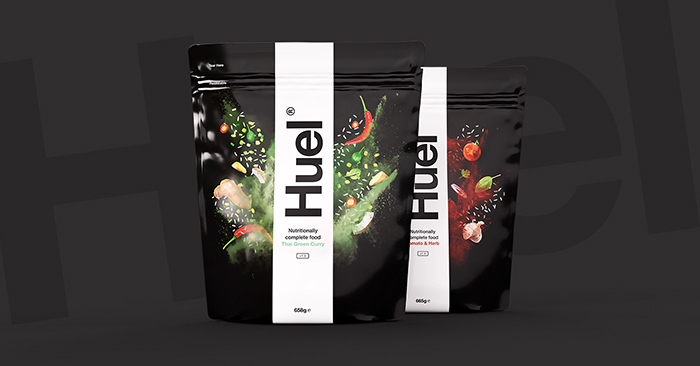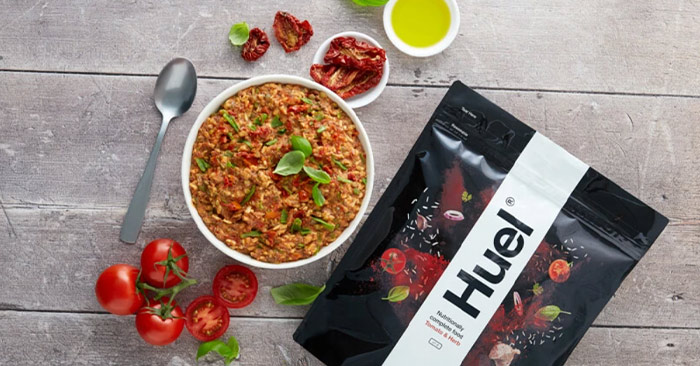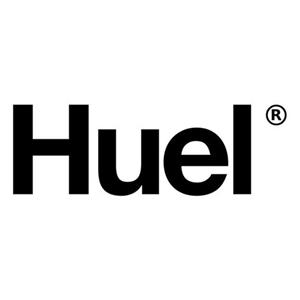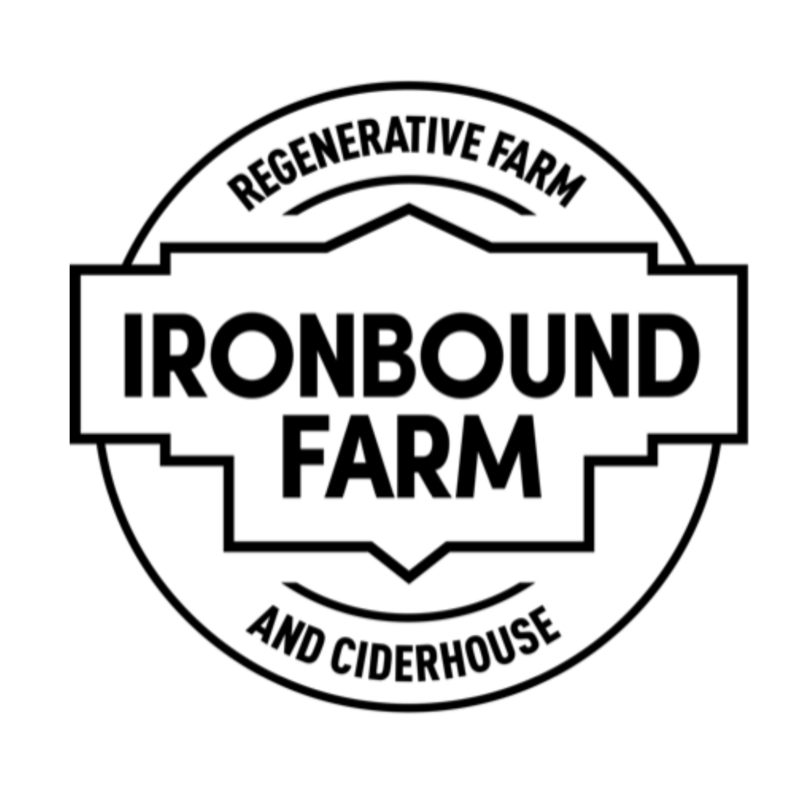Huel Offers A Solution to “Inconvenient Meals” With Hot & Savory Meal Line

Whether it’s in the form of a powder, beverage or snack bar, “Huel is food,” according to founder Julian Hearn. The meal replacement product brand, which seeks to be “lifestyle” oriented rather than just a quick bite, is now expanding beyond sweet offerings into its first savory item, Huel Hot & Savory.
Available in two varieties, Thai Green Curry and Tomato and Herb, each 23 oz. shelf-stable Hot & Savory pouch contains seven 400 calorie servings and is made with rice, quinoa, vegetables, herbs and spices. The product, which has a shelf life of 12 months when unopened, is prepared by adding two scoops of the mix to hot water or by microwaving it with water. Launched last week, the line is currently sold through the brand’s website for $25.56 per pouch, or roughly $3.65 per meal. Currently shoppers must purchase a minimum of three pouches at a time.
Huel launched in 2015 with a powdered shake product, but the brand’s portfolio has since grown to now include snack bars and a ready-to-drink beverage line marketed as a “nutritionally complete meal in a bottle.” Rather than adopting the traditional terminology of “meal replacements,” Huel has taken a more philosophical approach with its products, encouraging consumers to think differently about what a “meal” even means. Though its other products didn’t take the form of “traditional” meals, Hearn said he believes consumers should simply see them as just another type of food. In his view, the term meal replacement is incorrect because it implies a lack of nutritional value, whereas Huel offers “superior nutrition” including plant-based protein and essential vitamins and minerals.
“Why should Huel be considered a replacement for a burger and fries when we are a much better nutritional meal?” he said.
The new line was inspired by consumers’ interest in a savory option from the brand, according to Hearn. Hot & Savory marks the first Huel product that does not feature a sweet flavor profile: Because consumers tend to gravitate toward savory options for lunch and dinner more often than breakfast, Hearn said Huel developed Hot & Savory to provide consumers with an affordable meal solution that also expands the brand’s use occasions.

While brands such as Loma Linda and several others also offer shelf-stable, plant-based instant meal solutions, Hearn said Hot & Savory differs from its competition both because of its nutrition panel and its multiserve format. Hot & Savory Thai Green Curry contains 24 grams of protein from pea protein per serving (to compare, Loma Linda’s Heat & Eat Thai Green Curry contains five grams of protein per serving), and has a “positive macronutrient mix” of carbohydrates, fats, protein and fiber. The product also comes in a seven-serving bag and the multiserve format allows consumers control over portion size, Hearn said.
While the product is aimed at providing consumers with a quick and easy meal solution, Hearn said the overarching goal with Hot & Savory, as with other Huel products, is to “make nutritious food more accessible and more appealing to the masses.”
“Huel is there for your inconvenient meals,” Hearn said. “However, we know through customer surveys that the main reason our customers choose Huel is because of the superior nutrition it provides. It’s a lifestyle, not just when they’re pressed for time.”
Though Hot & Savory and all other Huel products are available exclusively online for U.S. consumers, the brand aims to be available in retailers nationwide within the next few years. Since its launch, Huel has been “predominantly a DTC business, and that has allowed us to become a global brand much quicker than being in retail,” Hearn said. This direct-to-consumer model proved to be especially beneficial during the COVID-19, he said, as consumers turned to buying more grocery items online. According to Hearn, a recent consumer survey indicated that since the pandemic began, 70% of consumers “either consumed Huel more than usual or their consumption remained the same.”
Emphasizing the brand’s continued growth amid the pandemic, in several Linkedin posts last week Hearn and CEO James McMaster disclosed Huel’s yearly revenue over the past five fiscal years, noting that the brand’s revenue over the last fiscal year to be £72 million, or approximately $92 million. The brand, which raised £20 million (approximately $26 million) from venture capital firm Highland Europe in 2018, has been profitable four out of its five years in business, according to McMaster’s post. While Hearn noted that European-based privately owned businesses are required to publicly share revenue numbers more often than U.S.-based businesses, he also said the Huel team wanted to share a “positive and inspiring” story during a challenging year for food and beverage brands.
“Huel has always been very transparent,” Hearn said. “Whether that’s about listing the full list of nutritionals on our packaging to how we speak to customers on our forum or social channels. We’re proud of how much we’ve achieved in five years since launching.”

















